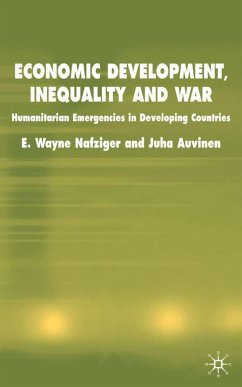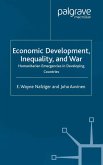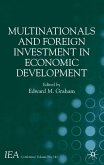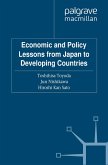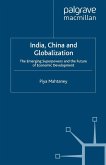"Economic Development, Inequality and War" shows how economic decline, income inequality, pervasive rent seeking by ruling elites, political authoritarianism, military centrality and competition for mineral exports contribute to war and humanitarian emergencies. Economic regress and political decay bring about relative deprivation, perception by social groups of injustice arising from a growing discrepancy between what they expect and get. Nafziger and Auvinen indicate that both economic greed and social grievances drive contemporary civil wars. Finally, the authors also identify policies for preventing humanitarian emergencies.
'We need a clear understanding of what causes humanitarian emergencies if we are to have any chance of taking preventive action. In this new book Wayne Nafziger and Juha Auvinen give us a concise and authoritative view of what to look out for when trying to understand the complex causes of war and humanitarian emergency, in particular the often neglected role of social inequality and relative deprivation.' - Tony Addison, Deputy Director World Institute for Development Economics Research (UNU/WIDER)
E. Wayne Nafziger and Juha Auvinen have produced a powerful, timely, and exceedingly well-researched analysis of the relationship between economic development and conflict and how economic factors affect war and state violence. This book makes a significant and highly commendable contribution to the literature on the economics of conflict and war, especially as they relate to human tragedies in developing nations. Easily the most authoritative source on the development implications of conflict and human catastrophe, this book provides comprehensive and multidimensional examination of the major sources and consequences of conflict - from the role of poverty, inequality, unemployment, and inflation to the impact of economic adjustment, authoritarianism and democratization. Most importantly, the book suggests pointed policy recommendations that would prevent further humanitarian emergencies in the developing world. - Emmanuel Nnadozie, Truman State University
Nafziger and Auvinen make a strong case for partially rejecting the currently fashionable analysis among some agencies such as the World Bank that individual greed is at the root of internal conflicts. They argue that grievances, especially popular anger over inequality, are closely associated with the appearance of humanitarian emergencies and internal wars. The cause of this problem is found in the behavior of small groups of elites who hang onto power. In many contexts rulers best do this through policies that are economically destructive and tear down the institutions of their own states-an abject and consciously engineered failure of economic development. Societal reactions to these strategies generate grievances, and ultimately conflicts. These reactions cannot be separated from material interests, but they are not the same thing as greed since popular demands originate in norms of entitlement. The authors explain how the context of local elite political choices, usually great poverty and preexisting social divisions, plays a crucial role in shaping how avaricious rulers promote their interests and how others react.
This very important book brings international policy to the heart of the analysis of humanitarian emergencies and conflict. The authors show how multilateral creditor policies that aim to cut the size of the state amidst shrinking resources reinforce the socially damaging behavior of some elites. They convincingly argue that concerted re-examination of global norms and policies on debt, arms trading, and diplomatic support for seemingly stable authoritarian regimes thus would make a significant contribution to remedying the root causes of internal conflicts.
Economic Development, Inequality, and War fills a void in the scholarly literature on humanitarian emergencies and conflict, and hence challenges assumptions of policy makers charged with addressing these emergencies. This book offers a comprehensive, rich, and insightful explanation of the root causes of internal conflicts. The fact that the authors are among the best-known experts on this subject will guarantee this book a wide audience among advanced undergraduate and graduate students, and policy and academic specialists.' - William Reno, Department of Political Science, Northwestern University
'This excellent volume provides a concise analysis of the root causes of humanitarian emergencies...The authors make an important contribution to the literature while providing us with a primer on the root causes of deadly conflicts.' - Basel Saleh, Journal of Peace Research
E. Wayne Nafziger and Juha Auvinen have produced a powerful, timely, and exceedingly well-researched analysis of the relationship between economic development and conflict and how economic factors affect war and state violence. This book makes a significant and highly commendable contribution to the literature on the economics of conflict and war, especially as they relate to human tragedies in developing nations. Easily the most authoritative source on the development implications of conflict and human catastrophe, this book provides comprehensive and multidimensional examination of the major sources and consequences of conflict - from the role of poverty, inequality, unemployment, and inflation to the impact of economic adjustment, authoritarianism and democratization. Most importantly, the book suggests pointed policy recommendations that would prevent further humanitarian emergencies in the developing world. - Emmanuel Nnadozie, Truman State University
Nafziger and Auvinen make a strong case for partially rejecting the currently fashionable analysis among some agencies such as the World Bank that individual greed is at the root of internal conflicts. They argue that grievances, especially popular anger over inequality, are closely associated with the appearance of humanitarian emergencies and internal wars. The cause of this problem is found in the behavior of small groups of elites who hang onto power. In many contexts rulers best do this through policies that are economically destructive and tear down the institutions of their own states-an abject and consciously engineered failure of economic development. Societal reactions to these strategies generate grievances, and ultimately conflicts. These reactions cannot be separated from material interests, but they are not the same thing as greed since popular demands originate in norms of entitlement. The authors explain how the context of local elite political choices, usually great poverty and preexisting social divisions, plays a crucial role in shaping how avaricious rulers promote their interests and how others react.
This very important book brings international policy to the heart of the analysis of humanitarian emergencies and conflict. The authors show how multilateral creditor policies that aim to cut the size of the state amidst shrinking resources reinforce the socially damaging behavior of some elites. They convincingly argue that concerted re-examination of global norms and policies on debt, arms trading, and diplomatic support for seemingly stable authoritarian regimes thus would make a significant contribution to remedying the root causes of internal conflicts.
Economic Development, Inequality, and War fills a void in the scholarly literature on humanitarian emergencies and conflict, and hence challenges assumptions of policy makers charged with addressing these emergencies. This book offers a comprehensive, rich, and insightful explanation of the root causes of internal conflicts. The fact that the authors are among the best-known experts on this subject will guarantee this book a wide audience among advanced undergraduate and graduate students, and policy and academic specialists.' - William Reno, Department of Political Science, Northwestern University
'This excellent volume provides a concise analysis of the root causes of humanitarian emergencies...The authors make an important contribution to the literature while providing us with a primer on the root causes of deadly conflicts.' - Basel Saleh, Journal of Peace Research

